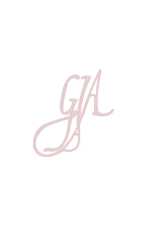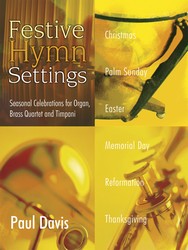- |
User Links
Our fathers' God, from out whose hand
Our fathers' God, from out whose hand
Author: John Greenleaf WhittierTune: MELITA (Dykes)
Published in 18 hymnals
Representative Text
1 Our fathers’ God, from out whose hand
The centuries fall like grains of sand,
We meet today, united, free,
And loyal to our land and thee,
To thank thee for the era done,
And trust thee for the opening one.
2 Our fathers to their graves have gone;
Their strife is past, their triumph won;
But sterner trials wait the race
Which rises in their honored place,—
A moral warfare with the crime
And folly of an evil time.
3 So let it be! In God’s own might
We gird us for the coming fight,
And strong in him whose cause is ours
In conflict with unholy powers,
We grasp the weapons he has given,—
The light, the truth, the love of heaven.
4 O make us, through the centuries long,
In peace secure, in justice strong;
Around our gift of freedom draw
The safeguards of thy righteous law;
And, cast in some diviner mold,
Let the new cycle shame the old!
Source: Worship and Song. (Rev. ed.) #208
Author: John Greenleaf Whittier
 Whittier, John Greenleaf, the American Quaker poet, was born at Haverhill, Massachusetts, Dec. 17, 1807. He began life as a farm-boy and shoemaker, and subsequently became a successful journalist, editor and poet. In 1828 he became editor of the American Manufacturer (Boston), in 1830 of the New England Review, and an 1836 (on becoming Secretary to the American Anti-Slavery Society) of the Pennsylvania Freeman. He was also for some time, beginning with 1847, the corresponding editor of the National Era. In 1840 he removed to Amesbury, Massachusetts, where most of his later works have been written. At the present time [1890] he lives alternately at Amesbury and Boston. His first poetical piece was printed in the Newburyport Free Press in 182… Go to person page >
Whittier, John Greenleaf, the American Quaker poet, was born at Haverhill, Massachusetts, Dec. 17, 1807. He began life as a farm-boy and shoemaker, and subsequently became a successful journalist, editor and poet. In 1828 he became editor of the American Manufacturer (Boston), in 1830 of the New England Review, and an 1836 (on becoming Secretary to the American Anti-Slavery Society) of the Pennsylvania Freeman. He was also for some time, beginning with 1847, the corresponding editor of the National Era. In 1840 he removed to Amesbury, Massachusetts, where most of his later works have been written. At the present time [1890] he lives alternately at Amesbury and Boston. His first poetical piece was printed in the Newburyport Free Press in 182… Go to person page >Text Information
| First Line: | Our fathers' God, from out whose hand |
| Author: | John Greenleaf Whittier |
| Language: | English |
| Copyright: | Public Domain |
Tune
MELITA (Dykes)The original chant melody associated with this text [i.e., "Eternal Father, strong to save"] is found in most hymnals of denominations where chant has played a role, including the Lutheran tradition, which has produced much organ music on this well-known chant. The setting here is by John B. Dykes (…
ST. CATHERINE (Hemy)
EISENACH (Gesius)
MACHS MIT MIR was first published in the collection of music Das ander Theil des andern newen Operis Geistlicher Deutscher Lieder (1605) by Bartholomäus Gesius (b. Münchenberg, near Frankfurt, Germany, c. 1555; d. Frankfurt, 1613). A prolific composer, Gesius wrote almost exclusively for the churc…


 My Starred Hymns
My Starred Hymns






